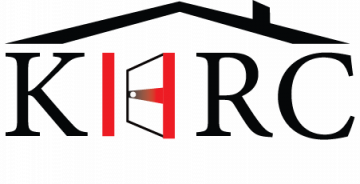Last November, policy makers, funders, researchers, advocates, community leaders, front line workers, and people with Lived Experience of homelessness from across Canada participated in the Canadian Alliance to End Homelessness’ virtual 2021 National Conference on Ending Homelessness. Over the weekend, CAEH released the presentation recordings to their YouTube channel, including four presentations on local topics by teams within the Kelowna area. We hope you will join us in congratulating their ongoing efforts to contribute knowledge and expertise in addressing the challenge of homelessness, and we hope you find each of the presentations informative and inspirational.
The conference topics spanned multiple themes:
- Building Equitable Homeless Systems – DEI
- A Way Home – Youth Homelessness Prevention – AWH
- Canadian Observatory on Homelessness – Research and Policy – COH
- Canadian Observatory on Homelessness – Prevention – P
- Coordinated Access – CA
- Health Care and Homelessness – HCH
- Housing First – HF
- Indigenous Homelessness – IH
- Lived Experience – LE
- Leadership, Improvement and Change Management – LCM
- Pandemic Response & Recovery – PRR
- Rural and Remote Homelessness – RRH
- Women’s Homelessness – WH
- Unique Populations – UP
Embedding Authentic Allyship into the Research Process (COH1 – 1)
Kyleen Myrah, Kerry Rempel, Stephanie Laing, Sherry Landry, Dorothy Goodeye
How does one conduct authentic, ethical and community-engaged research with marginalized populations? With our lived experience advisors as co-researchers, we have developed a toolkit (with a supporting video tool) that documents how to incorporate allyship into the research process. Learn about the guiding philosophy, step-by-step framework, implementation considerations and the benefits of incorporating allyship into your practice. Workshop attendees will learn how our team was guided and informed through a lived experience lens, ensuring those with established relationships and experience play a central role as an “ally” in building the critical trust required for this type of research.
- Presentation: https://www.youtube.com/watch?v=oreENNfnyEI
- COH Research 1 Promising Practices in Research Q&A: https://www.youtube.com/watch?v=WqW6Pbm5dDE
Addressing Homelessness in Kelowna: Establishing Participatory Action Research Priorities (P4 – 2)
Kerry Rempel, Stephanie Laing, Sherry Landry, Dorothy Goodeye
Knowledge mobilization is often an afterthought in research design. Using a case study from Kelowna, BC, this presentation will highlight how including knowledge mobilization into the design of a research project can change not only how it is conducted, but also create some unexpected outcomes. The presentation will also provide an overview of how stakeholder relationships played a role in getting the data out to community. The research focused on vulnerability to homelessness and how it can be prevented or mitigated. Examples of knowledge mobilization took the form of written community reports, ‘2-pagers’, videos, and presentations.
- Presentation: https://www.youtube.com/watch?v=clGQbB_cUuY
- P4 Knowledge Mobilization Q&A: https://www.youtube.com/watch?v=cERsljRMI4Y
Lived Experience Site Visits, Learnings and Benefits (LE4 – 1)
Sherry Landry, Stephanie Krehbiel, Dorothy Goodeye, Elaine McMurray
Embedding the voices of lived experience in the design and implementation of Covid-19 planning and other initiatives through a Sparc BC community action grant in the community of Kelowna.
- Presentation: https://www.youtube.com/watch?v=NqLAIf991Eo&t=58s
- LE4 Outreach and Inclusion Q&A: https://www.youtube.com/watch?v=fZ3p_tIIDQg&t=37s
Upstream Canada – A Local Adaptation: West Coast Pilot, Kelowna BC (AWH1 – 1)
Philippa Putlitz
Upstream Kelowna has effectively implemented a local adaption of Upstream Canada – an Early Intervention Strategy to End Youth Homelessness. This presentation will outline the successes, challenges and outcomes of each phase of the initiative to provide the audience with tangible and actionable information. After viewing this presentation, communities across Canada will have gained a frontline perspective of implementing a large scale initiative from the ground up.
- Presentation: https://www.youtube.com/watch?v=Da0cUHqOEow
- AWH1 Youth Homelessness Prevention Q&A: https://www.youtube.com/watch?v=nmYrr2kAHVM
